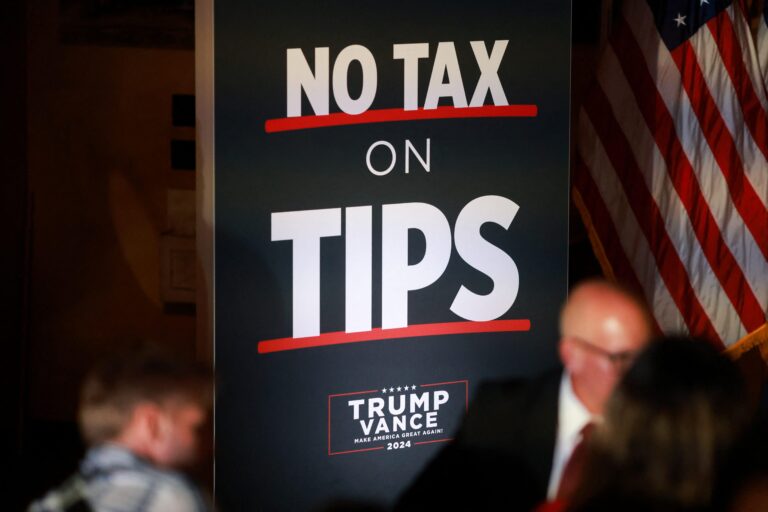Senate Approves Landmark Legislation to Exempt Tips from Federal Income Tax
The U.S. Senate has recently passed the groundbreaking “No Tax on Tips” Act,a bill championed by Senator Jacky Rosen of Nevada,designed to provide substantial financial relief to millions of workers in the service sector. This legislation eliminates federal income tax on tips, addressing a long-standing issue that has placed a heavy tax burden on employees who depend on gratuities as a significant portion of their earnings. This move is especially impactful in states like Nevada, where the hospitality industry is a cornerstone of the economy.
Overview of the No Tax on Tips Act and Its Nationwide Impact
The newly enacted legislation exempts all tips received by service workers from federal income taxation, allowing these employees to retain a larger share of their earnings. This change is expected to improve financial security for millions of individuals working in restaurants, hotels, bars, and other tipped professions across the country. By removing the tax on tips, the bill aims to stabilize incomes in an industry often characterized by fluctuating wages and economic uncertainty.
Highlights of the No Tax on Tips Act include:
- Complete exemption of federal income tax on tips earned by service employees.
- Increased disposable income for workers in hospitality and related sectors.
- Potential stimulation of the service industry through enhanced worker spending power.
| State | Estimated Number of Beneficiaries | Average Annual Tip Earnings |
|---|---|---|
| Nevada | Over 150,000 | $8,700 |
| California | More than 460,000 | $7,400 |
| New York | Approximately 310,000 | $9,300 |
Detailed Provisions and Their Effects on Service Industry Employees
This legislation fundamentally changes how tip income is treated for tax purposes. Tips directly received from customers will no longer be subject to federal income tax, enabling workers to keep more of their earnings and promoting greater economic stability within the service sector. The act also introduces streamlined reporting requirements, including exemptions for small daily tip amounts and adjusted documentation thresholds, which reduce administrative burdens for both employees and employers.
Employers will experience simplified payroll processes, while employeesŌĆöespecially in tourism-centric states like NevadaŌĆöcan expect a noticeable increase in net income. Additionally, the bill includes protections to prevent tip earnings from being garnished for debts unrelated to taxes, ensuring workersŌĆÖ essential income remains secure.These changes are anticipated to improve job satisfaction and reduce turnover rates in the hospitality industry.
| Provision | Benefit to Workers |
|---|---|
| Tax exemption on tips under $20 per day | Less paperwork and higher net earnings |
| Protection against garnishment of tips | Preserves critical income from unrelated debt claims |
| Simplified tip income reporting | Reduces compliance complexity for employees and employers |
Economic Advantages and Potential Obstacles of the New Tax Policy
The enactment of the “No Tax on Tips” Act is expected to deliver meaningful economic benefits to service workers such as servers, bartenders, and other tipped employees. By exempting tips from federal taxation, workers will have more disposable income, which could lead to increased consumer spending and invigorate local economies. Hospitality businesses, especially in states with large tourism sectors like Nevada, may experience improved employee morale and retention, reducing costs associated with high turnover and enhancing service quality. Proponents argue this legislation fosters a fairer financial landscape for workers whose incomes are often unpredictable and heavily taxed.
- Boosted employee motivation due to direct financial gains.
- Increased consumer expenditure fueled by higher take-home pay.
- Growth potential for the hospitality industry in key regional markets.
Despite these benefits, the policy presents challenges. Critics warn that exempting tips from taxation could reduce federal revenue, potentially affecting funding for public programs supported by payroll taxes. The absence of mandatory tax reporting on tips may complicate income verification and enforcement, increasing the risk of underreported earnings. Small businesses might face transitional difficulties updating payroll systems and ensuring compliance with the new rules. Economists also caution that reduced contributions to Social Security could impact long-term benefits for workers.
| Economic Factor | Potential Upside | Possible Drawback |
|---|---|---|
| Employee Earnings | Increased net income | Risk of underreporting tips |
| Federal Revenue | None (revenue loss) | Potential budget deficits |
| Business Management | Improved staff morale | Need for payroll system updates |
| Social Security Contributions | Greater spending capacity | Lower long-term benefit accruals |
Guidance for Employers and Employees on Adapting to the New Tip Tax Regulations
For Employers: It is indeed crucial to promptly revise payroll systems to align with the new tax exemption on tips. Clear communication with staff about these changes is essential, which can be facilitated through training sessions or detailed informational materials. Employers should update employee handbooks and tipping policies to reflect the new rules, ensuring transparency and minimizing confusion. Additionally, staying informed about any state-level tax regulations that may still apply to tips is important for full compliance.
For Employees: Although federal taxation on tips has been removed, workers should continue to accurately track and report tip income for state and local tax purposes. Staying informed through employer updates or consulting tax professionals can help maximize take-home pay and avoid potential issues. Employees are encouraged to regularly review pay statements for accuracy and seek assistance if discrepancies arise, ensuring their earnings are properly recorded under the new legislation.
Conclusion: A Milestone for Fair Compensation in the Service Industry
The SenateŌĆÖs approval of the “No Tax on Tips” Act represents a pivotal advancement for tipped workers nationwide, particularly in hospitality-centric states such as Nevada. This legislation, driven by a Nevada senatorŌĆÖs advocacy, aims to ease the tax burden on gratuities, potentially increasing take-home pay for millions of service employees. As the bill proceeds to the House for further consideration, industry stakeholders remain optimistic that it will soon be enacted into law, offering vital financial relief to a sector still rebounding from the economic impacts of the pandemic. The upcoming weeks will be critical as lawmakers and advocates work to ensure this measure supports equitable and sustainable compensation for tipped workers.




